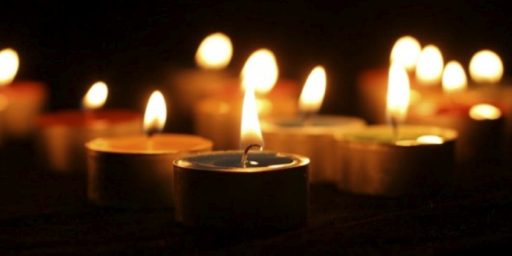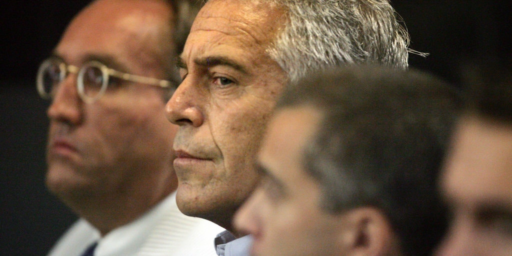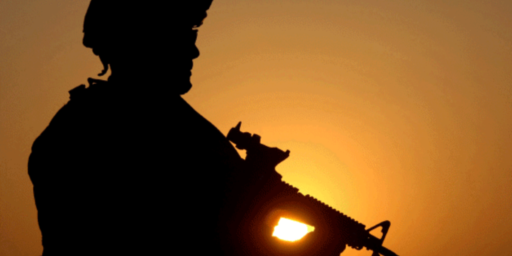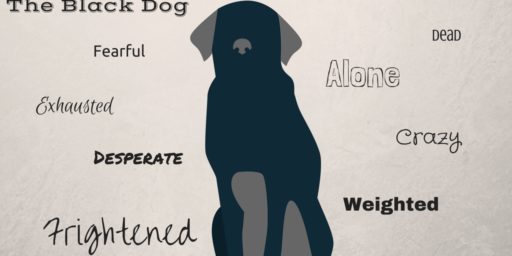Anthony Bourdain: An Appreciation Of A Life Well Lived, And Cut Short Too Soon
Anthony Bourdain was a renowned chef, writer, television host, and storyteller. He also suffered from demons that ultimately caught up with him.
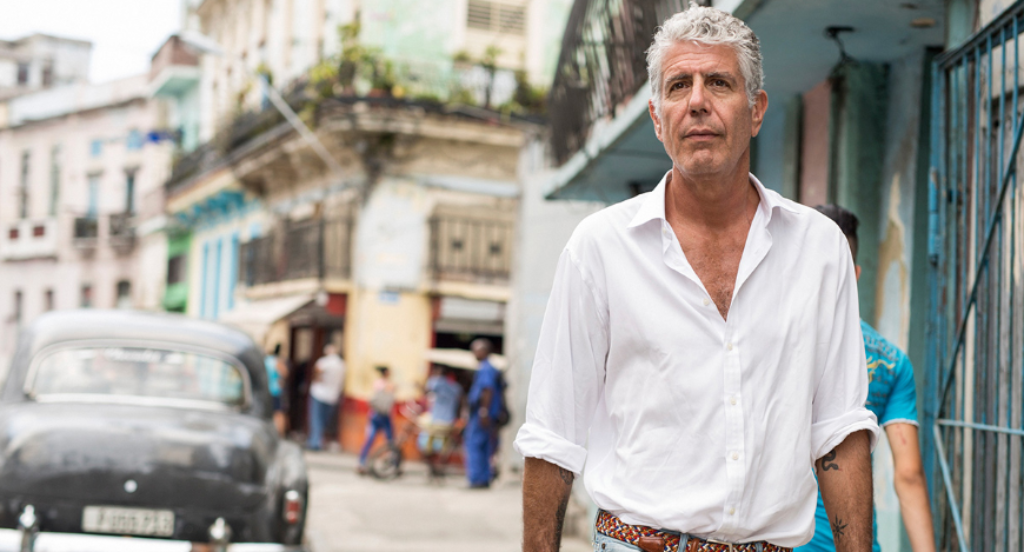
As James Joyner noted earlier today, Anthony Bourdain, the celebrity chef who gained stardom as the host of the Travel Channel’s No Reservations and, more recently, CNN’s Parts Unknown, committed suicide today at the age of 61:
Anthony Bourdain, whose madcap memoir about the dark corners of New York’s restaurants made him into a celebrity chef and touched off a nearly two-decade career as a globe-trotting television host, was found dead on Friday at 61.
Mr. Bourdain spent two decades in restaurant kitchens, at first shucking oysters and cleaning dishes in a Cape Cod seafood shack and later serving high-end meals in Manhattan, before accepting a friend’s offer to fly him to Mexico if he agreed to write a novel. It was the start of a second act as an author and then a host, redefining the staid genres of food writing and food-tourism shows with an inquisitive but profane bad-boy image that endeared him to fellow chefs, restaurant-goers and travelers.
Mr. Bourdain was found dead in his room at Le Chambard, a luxury hotel in the village of Kaysersberg in the Alsace region of eastern France, according to a prosecutor in the nearby city of Colmar. The prosecutor, Christian de Rocquigny du Fayel, said the cause of death was hanging. “At this stage, we have no reason to suspect foul play,” he said.
Mr. Bourdain had traveled to Strasbourg in France, near the country’s border with Germany, with a television production crew to record an episode of his show “Parts Unknown” on CNN, the network said. “It is with extraordinary sadness we can confirm the death of our friend and colleague,” CNN said in a statement.
(…)
For decades, he worked 13-hour days as a line cook in restaurants in New York and the Northeast before he became executive chef in the 1990s at Brasserie Les Halles in Manhattan, serving steak frites and onion soup. He had been an executive chef for eight years when he sent an unsolicited article to The New Yorker about the dark side of the restaurant world and its deceptions.
To his surprise, the magazine accepted it and ran it — catching the attention of book editors. It resulted in “Kitchen Confidential: Adventures in the Culinary Underbelly,” a memoir that elevated Mr. Bourdain to a celebrity chef and a new career on TV.
“Do we really want to travel in hermetically sealed popemobiles through the rural provinces of France, Mexico and the Far East, eating only in Hard Rock Cafes and McDonalds?” Mr. Bourdain wrote in the memoir. “Or do we want to eat without fear, tearing into the local stew, the humble taqueria’s mystery meat, the sincerely offered gift of a lightly grilled fish head? I know what I want. I want it all. I want to try everything once.”
(…)
“Kitchen Confidential” has sold over a million copies in paperback and remains the defining memoir in the field. “His prose voice was instant and unmistakable,” said Dan Halpern, the HarperCollins editor who became Mr. Bourdain’s friend, fellow eater and literary collaborator. “You can read out any sentence and know instantly who wrote it.”
In 2011, Mr. Bourdain, an omnivorous reader, began his own publishing imprint at HarperCollins, editing books by the chefs Roy Choi, Wylie Dufresne and Danny Bowien that were as unconventional as his own.
Before he joined CNN in 2012, he spent eight seasons as the globe-trotting host of “No Reservations” on the Travel Channel, highlighting obscure cuisine and unknown restaurants. “No Reservations” largely focused on food and Mr. Bourdain himself. But on “Parts Unknown,” he turned the lens around, delving into different countries around the world and the people who lived in them. He explored politics and history with locals, often over plates of food and drinks.
Mr. Bourdain famously appeared with President Barack Obama on an episode of “Parts Unknown” in Vietnam in 2016. Over grilled pork, noodles and beers at a restaurant in Hanoi, they discussed Vietnamese-American relations, Mr. Obama’s final months in office and fatherhood.
(…)
Anthony Michael Bourdain was born June 25, 1956, the oldest son of Pierre Bourdain, who was an executive in the classical-music recording industry, and Gladys Bourdain, who was a longtime copy editor at The New York Times. He grew up outside New York City, in Leonia, N.J., and his parents exposed him to fine cuisine, taking him often to France.
Mr. Bourdain graduated from high school in 1973 and attended Vassar College, dropping out after two years, where he spent long nights drinking and smoking pot. “I was — to be frank — a spoiled, miserable, narcissistic, self-destructing and thoughtless young lout,” he wrote in “Kitchen Confidential.”
But before he left Vassar for a chance at a culinary career, he met Nancy Putkoski, who would become his first wife. Mr. Bourdain spent a summer in Provincetown on Cape Cod with some friends. There, he started working as a dishwasher at a seafood restaurant and closely watched the cooks, men who dressed like pirates, with gold earrings and turquoise chokers. “In the kitchen, they were like gods,” he wrote.
The experience solidified his determination to make cooking his life’s work.
“I saw how the cooks and chefs behaved,” Mr. Bourdain told The Times in 1997. “They had sort of a swagger, got all the girls and drank everything in sight.”
He then enrolled at the Culinary Institute of America in 1975 and graduated in 1978, stepping away at times to work at restaurants in Greenwich Village in Manhattan. He started at the bottom in the kitchen hierarchy, with stops at the Rainbow Room, the W.P.A. restaurant on Spring Street and Gianni’s at the South Street Seaport. He reached the top in the 1990s, becoming an executive chef at Sullivan’s, the restaurant next to the Ed Sullivan Theater on Broadway, and at Les Halles.
Not surprisingly, the news of Bourdain’s death has prompted a number of people to speak out in remembrance, from celebrity chefs to media personalities. New York Times columnist Frank Bruni, for example, remembers him as “insatiable and unknowable,” while William O’Connor at The Daily Beast defines him as “American Cool:”
Yes, Anthony Bourdain was American cool.
I say this as somebody who hates the word “cool” and all the contrived nonsense that it stirs up, but the man really was. He could hold court with gourmand French chefs in one episode, and then gut and cook a chicken on the Congo River in the next. I was proud to have my country associated with him—he was in that brash yet debonair American mold that foreigners eat up.
He is also one of the few people I admired, and so immediately after getting the news that he had committed suicide in a hotel in France, I began to miss him.
Part of why I felt such a connection to Bourdain, a man I have never met, was personal. I’d written my college essay about my struggles fitting in at a New England boarding school as a scholarship day student. In the essay, I talked about how my saving grace socially had been food—whether over long hours eating soft-serve in the dining hall or over Sunday dinners my family hosted—it was over food that I got to know people, and more importantly learned to let them know me. Bourdain’s episodes all tapped into that emotional past for me as I watched people open up to this lanky, often-drunk, tattooed American TV host over a meal they or somebody they knew had cooked.
And the chef-turned-host understood this idea that eating is a somewhat safe space—or at least a place where human interaction becomes less fraught (especially if the food, and wine, are good). So for the past decade and a half that’s what he did. He got people to open up over food. He didn’t bring about world peace by any stretch of the imagination, but given some of the difficult places where he was having conversations, just talking and hearing people voice what was important to them seemed subversive. It was no small irony that at a time when the world was fragmenting thanks to a revived strain of ugly nationalism, Bourdain was trying to create some small connections. Travel is not a panacea to the world’s problems, but it’s a good start.
This news broke early this morning via a news release from CNN and has been the focus of much of the content on the network today as Bourdain’s co-workers are no doubt still coming to grips with the shocking news while still going forward with their jobs. To say that it comes as a shock is an understatement. I was an avid fan of No Reservations and followed Bourdain when he moved to CNN to do a show that served as both a travelog and a celebration of food and culture that won him several awards, including five Emmy Awards and eleven nominations, to go along with those that he had won for his writing and for No Reservations. Shortly before he moved to CNN, Bourdain also hosted another Travel Channel show called The Layover that was basically a chronicle of what one could do in select locations around the world in just 24 or 48 hours. Though the show only lasted two seasons before Bourdain jumped to CNN, it was essentially a preview of the kind of show that Parts Unknown would eventually become.
One of the most memorable episodes of Parts Unknown involved a trip that Bourdain took to Libya just months after the conclusion of that nation’s bloody civil war when the nation was still very much in chaos. Even in the middle of all that chaos, though, Bourdain was able to tell a great story about a people who were discovering freedom for the first time in their lives and teach us all about a culture that had been hidden behind a dictatorship since the late 1960s. Other memorable episodes that come to mind include stops in Singapore, France, Italy, and Paraguay, from where Bourdain’s family can trace its roots. Here in the Western Hemisphere, he did shows based out of Los Angeles, New Orleans, West Virginia, and New Jersey where his storytelling skills were on great display.
As James noted, this morning’s news of Bourdain’s death by suicide comes just a few days after the news about designer and businesswoman Kate Spade, who took her own life at the age of 55 earlier this week. One of the most common reactions in that case, as it will likely be in Bourdain’s case, is shock or surprise at the idea that someone who was so successful at their chosen career would take their own life. What it shows us, though, is the fact that depression doesn’t know boundaries. It can hit the most immensely successful and seemingly happy people in the world as easily as it can hit someone who has been dealt a bad hand by life. That, of course, is a lesson that we should have learned from the death by suicide of Robin Williams in 2014. Depression can ruin any person’s life, even the lives of people who seem like they have everything you could want in life. For those who suffer from it on a chronic basis, it’s a battle that the sufferer has to win every day. The disease just has to win once, and it can hit at seemingly the most unexpected times. That makes this note from CNN all the more appropriate:
If you or someone you know might be at risk of suicide, here are ways to help: https://t.co/IdA7Mn7fkP
Call 1-800-273-8255 to reach the National Suicide Prevention Lifeline.
It provides free and confidential support 24 hours a day, 7 days a week. pic.twitter.com/d6APSr4ogg
— CNN (@CNN) June 8, 2018
Reaching out to those in need of help is perhaps the best way we can respond to something like this.

